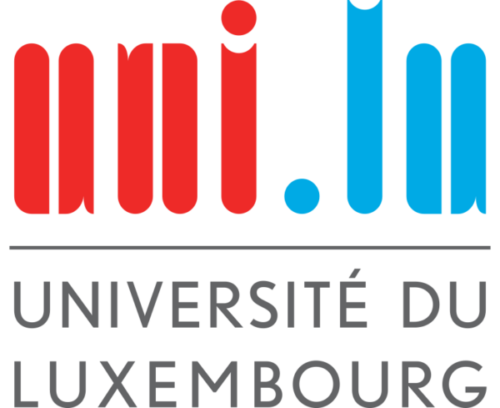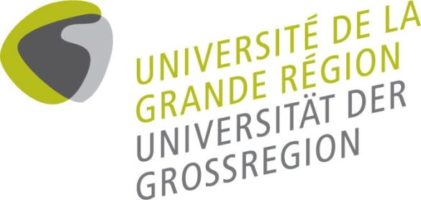Objectives
First specific objective: document and share the experience of UniGR, which has a sustainable legal structure as a Luxembourgish association since 2015.
UniGR acquired a legal existence in 2015. This process will be documented to explicate the genesis of the first legal structure and its relevance for the sustainability of the university alliance. We intend to document all the intellectual input and output which have been generated before the project and which will be generated during the project in analysing the option of a change of a legal status. We will share the governance discussion and the involvement of local authorities, including the documents which drove the questioning of a change of a legal status. We expect this initiative to be beneficial to the alliance, as it will document the decisional process, and to the public, as an experiential learning experience of an alliance of universities in structuring itself. We will also share the financial approaches which have been considered, and the limitations which are induced by the founding legal status and why a new status may be needed.
The measurable output will be a report, including timelines and documentation, which will depict the learning curve in launching a debate between universities and national authorities on a change of the legal status of UniGR. Also, we plan a public hybrid event to openly present and discuss the output of this analysis. Further, our intention is to have four ‘European Universities’ participating to the event as three partners of UniGR are members of ‘UNIVERSEH’, ‘Tranform4Europe’ and ‘UNIC’ European universities, a fourth member being associated to EURECA-PRO.
Second specific objective: support the development of UniGR as a transregional university alliance by identifying the most appropriate legal entity to progress.
The legal status of a group of universities is established to support cooperation and sharing of resources. In UniGR’s case, the difficulty is to set up a single joint status that will satisfy decision-makers in the operations of their respective institutions in a cross-border context. Institutions’ international policies may largely interfere with research policies for example. If research funding is an indicator of success, partner institutions may be reluctant at consolidating this funding with the alliance within a new legal entity, losing some aspects of research performance useful for international ranking.
Further, the cross-border context of operation cannot avoid considerations on mutual concurrence, for student and academic recruitments, call for regional or national funding, etc. It is our intention to factualize these aspects, in a full and open cooperation with the partner universities, to fully depict the possible hurdles for the functioning of a transnational alliance of HEIs.
We believe that reaching this objective will guarantee the pursuing of a high level of systemic, structural, and sustainable institutional cooperation between all partner universities of UniGR.
The output will be a report exhibiting the key points in explicating the exact mission of the legal entity. This will allow the drafting of the first fundamental elements of the statutes of a new legal structure. This action is crucially important since it will determine the long-term functioning of the cooperation, and the consolidation of actions and results.
Governing and managing strategic alliances is a complex business, particularly when such alliances bring together a variety of partners which may themselves be decentralised higher education institutions. Crucial challenges (education, research, organization, budget) can be acknowledged and probably no blue-print solutions are directly available.
Different options in terms of legal entities will be considered: From the EGTC to forms such as asbl or European Economic Interest Group for example. It should be stressed that the project will operate within the legal frameworks of the four countries Germany, France, Luxembourg and Belgium and that considering other legal entities outside these legal frameworks would not add value to the project as they would be non-applicable to UniGR per se.
Third specific objective: explore and analyse the terms and conditions of a legal status which will catalyse European and national UniGR development and funding according to its core missions.
UniGR is a direct output and success of an INTERREG project, which is one of the key instruments of the European Union (EU) supporting cooperation across borders through project funding. It aims to jointly tackle common challenges and find shared solutions in fields such as health, environment, research, education, transport, sustainable energy and more. UniGR perpetuates this objective in its mission and strategic plan.
To fulfil this third objective, a number of analyses must be performed, with the cooperation of regional and national authorities. These analyses include, but not exclusively:
> Establishment: experts agree that the procedure for establishing a new legal status may last one to two years, as the convention and the statutes require validation of all parties involved (including the member states, if needed, where the partners are located). experts
> Applicable law: as a cross-border structure, a choice must be made on the connecting law e., where the structure is legally registered. Currently, member states have introduced the EGTC into their respective legislation and conferred a specific legal entity form linked to their national legislation (e.g., in France: régime des syndicats mixtes de droit public, for ex.). Most of the time, however, the legal form of the EGTC is not fixed by national law; this allows for a certain flexibility in its management modalities. The question of establishing an international asbl (aisbl) remains also open for now, or even a European Economic Interest Group.
> Administration and management: the new legal entity shall be governed by a convention concluded by its founding members and by statutes that complement it; our goal is also to minimise the number of governing bodies to optimise operating costs. Still, the question of considering the addition of a senate or an academic board due to the special nature of the legal entity must be resolved. The legal entity is supposed to work like a normal university which may impose a minimal mimicry to university structures. In this regard, we need to consider the possible establishment of an academic board in order to respect and facilitate the academic mission of the legal structure. The academic (and research) nature of the new entity has to be firmly established already at the initiation of the process so that no ambiguity may appear or last.
> Liability: some advanced examination has already been done in considering EGTC as a potential option. As a basic principle, the EU Regulation considers the EGTC as an organisation with unlimited liability but if one member (due to its national provisions) takes part in the cooperation with limited liability, further members may easily limit their liability. The same question is unsolved for other legal entities. We will seek legal guidance from the authorities.
> Place of registration: UniGR is at the heart of Europe, with four participating countries being the founding members of the Treaty of Rome. UniGR shares the goal of the signatories to ‘lay the foundations of an ‘ever closer union’ among the peoples of Europe’. We recommend the legal entity to be settled in one of these four countries. Luxembourg agreed to continue to home UniGR future registered office, in continuity with current situation. A careful analysis must take place to delineate a ‘European’ functioning, where the registered office may be in a member state, whereas its operational headquarters may be in another state; this would be a critical advantage for UniGR, as it directly shows the cross-border European character of it.


